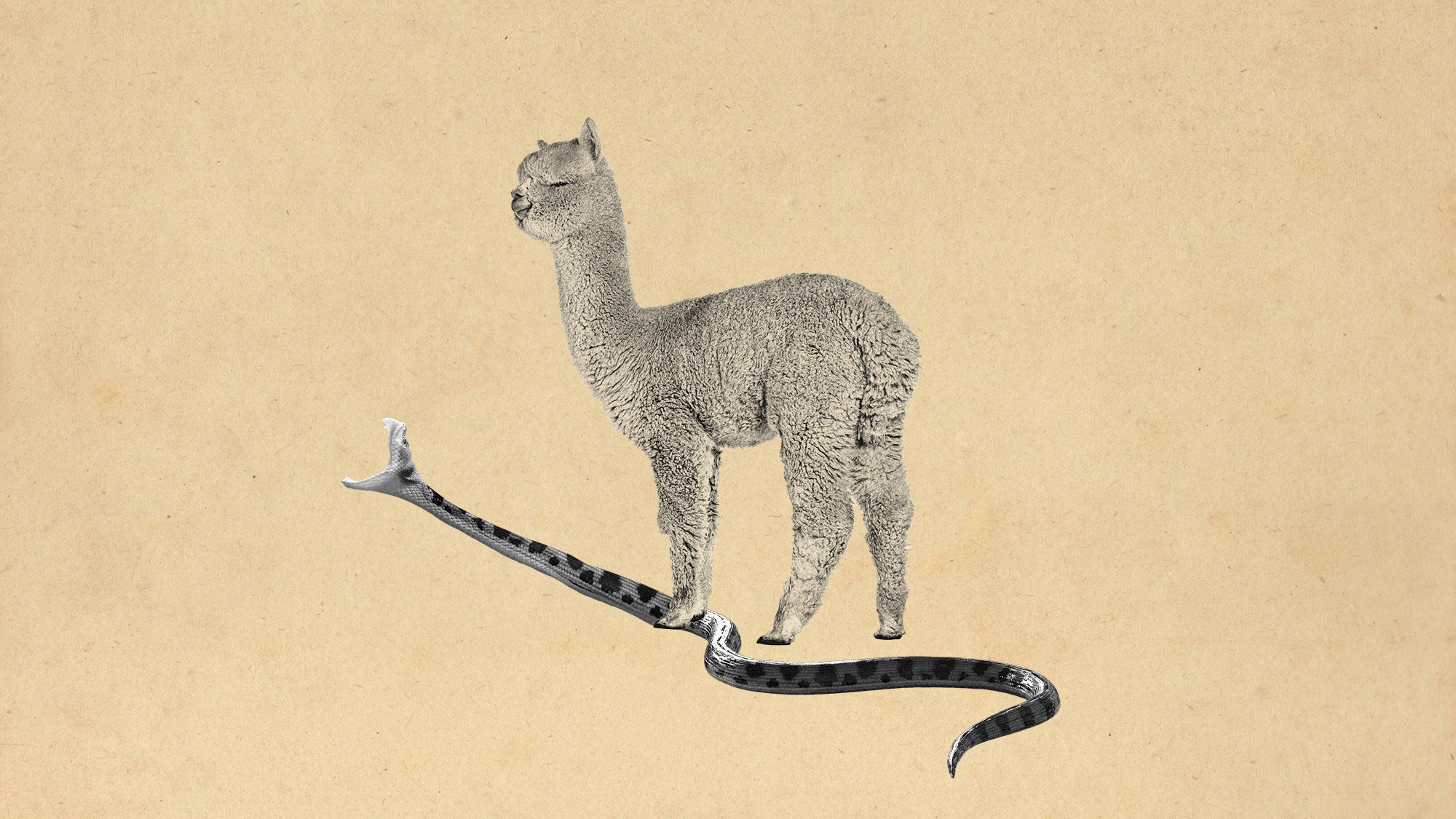The mental health crisis affecting vets
Death of Hampshire practitioner highlights mental health issues plaguing the industry

A free daily email with the biggest news stories of the day – and the best features from TheWeek.com
You are now subscribed
Your newsletter sign-up was successful
A vet killed himself after becoming increasingly upset that customers with brand-new cars parked outside his surgery wouldn't pay to help their animals, an inquest has heard.
Dr John Ellis, 35, also believed that owners were "leaving it too late to come in" with their pets, meaning nothing could be done and "he was finding that destroying", his mother, Tina Ellis, told the hearing.
Financial factors
Studies and reports have shown that suicide and mental health issues are commonplace in the industry. A 2022 study in Australia found that nearly 70% of vets have lost a colleague or peer to suicide and about six in 10 had sought professional help for their mental health. A separate study by the Australian Veterinary Association reported similar results, finding that about 67% of vets have experienced a mental health condition.
The Week
Escape your echo chamber. Get the facts behind the news, plus analysis from multiple perspectives.

Sign up for The Week's Free Newsletters
From our morning news briefing to a weekly Good News Newsletter, get the best of The Week delivered directly to your inbox.
From our morning news briefing to a weekly Good News Newsletter, get the best of The Week delivered directly to your inbox.
Vets in the UK are four times as likely to die from suicide as the general public, University of Southampton research found in 2010. Financial factors "play a part" in this trend, said the BBC, as do "the pressures and long hours" of the job, "expectations of pet owners" and "exposure to trauma and frequent euthanasia".
As prices have risen, so has the pressure. Emily Volk, a vet who works nights in an emergency clinic in New Jersey, US, told the broadcaster that "you get accused of only being here for the money", and one customer called her a "thief".
Some clients also accuse vets of malpractice, which is “very rare” in reality, Dr Julie Buzby, a vet from South Carolina, told the New York Post. She said that although she understood that grieving pet owners were just "lashing out", this can be very hard on vets.
But veterinarians "often have their own money woes, too", said the broadcaster, because veterinary school is "both extremely selective and extremely expensive", meaning vets have "large debt loads relative to their earnings".
A free daily email with the biggest news stories of the day – and the best features from TheWeek.com
Real living nightmare
Workers at a Welsh practice owned by one of the UK's largest veterinary corporations went on strike in July, accusing their private-equity-backed owner, VetPartners, of underpaying workers and overcharging pet owners.
In the first industrial action to hit the UK veterinary sector, vets, nurses and support staff at Valley Vets in South Wales, argued that, with an estimated value of £3 billion, VetPartners "could afford to pay the real living wage of £12 an hour".
A union survey of Valley Vets staff found that 80% of them regularly borrowed money to meet basic living costs and 5% had to use food banks. "We can't afford to live" one told The Guardian, adding that "it's dehumanising and embarrassing to be put in that position when I’m giving everything I've got to the job that I do".
Another claimed that VetPartners pressured him to charge customers for every procedure and treatment, no matter how small. The company said that "providing the best possible care of pets comes above all else across our veterinary practices".
Last month VetPartners announced that it was closing all but one of its Welsh practices, reported WalesOnline.
The domestic animal care sector has been "progressively taken over by corporations" since it was deregulated in 1999, said the broadsheet, with almost 60% of UK vet surgeries now owned by six large companies. They often retain their original practice names, "leaving the public in the dark" about the new corporate owners.
Chas Newkey-Burden has been part of The Week Digital team for more than a decade and a journalist for 25 years, starting out on the irreverent football weekly 90 Minutes, before moving to lifestyle magazines Loaded and Attitude. He was a columnist for The Big Issue and landed a world exclusive with David Beckham that became the weekly magazine’s bestselling issue. He now writes regularly for The Guardian, The Telegraph, The Independent, Metro, FourFourTwo and the i new site. He is also the author of a number of non-fiction books.
-
 Political cartoons for February 18
Political cartoons for February 18Cartoons Wednesday’s political cartoons include the DOW, human replacement, and more
-
 The best music tours to book in 2026
The best music tours to book in 2026The Week Recommends Must-see live shows to catch this year from Lily Allen to Florence + The Machine
-
 Gisèle Pelicot’s ‘extraordinarily courageous’ memoir is a ‘compelling’ read
Gisèle Pelicot’s ‘extraordinarily courageous’ memoir is a ‘compelling’ readIn the Spotlight A Hymn to Life is a ‘riveting’ account of Pelicot’s ordeal and a ‘rousing feminist manifesto’
-
 Scientists have developed a broad-spectrum snake bite antivenom
Scientists have developed a broad-spectrum snake bite antivenomUnder the radar It works on some of the most dangerous species
-
 The New World screwworm is making a deadly comeback
The New World screwworm is making a deadly comebackThe explainer The parasite is spreading quickly
-
 Brazil has a scorpion problem
Brazil has a scorpion problemUnder The Radar Venomous arachnids are infesting country's fast-growing cities
-
 What's behind rise in duo euthanasia?
What's behind rise in duo euthanasia?Under The Radar The 'saddest deaths of all' have stirred controversy in the Netherlands
-
 The dangerous search for bodies in the River Thames
The dangerous search for bodies in the River ThamesThe Explainer Retrieving corpses is difficult due to 'massive' tidal range and fast current of deep, dark water
-
 Afghanistan has a growing female suicide problem
Afghanistan has a growing female suicide problemSpeed Read The Taliban has steadily whittled away women's and girls' rights in Afghanistan over the past 2 years, prompting a surge in depression and suicide
-
 An increasing number of dog owners are 'vaccine hesitant' about rabies
An increasing number of dog owners are 'vaccine hesitant' about rabiesSpeed Read A new survey points to canine vaccine hesitancy
-
 A tropical skin disease is making the rounds in the US
A tropical skin disease is making the rounds in the USSpeed Read Leishmaniasis is endemic to the country and can cause ulcers and disfiguration